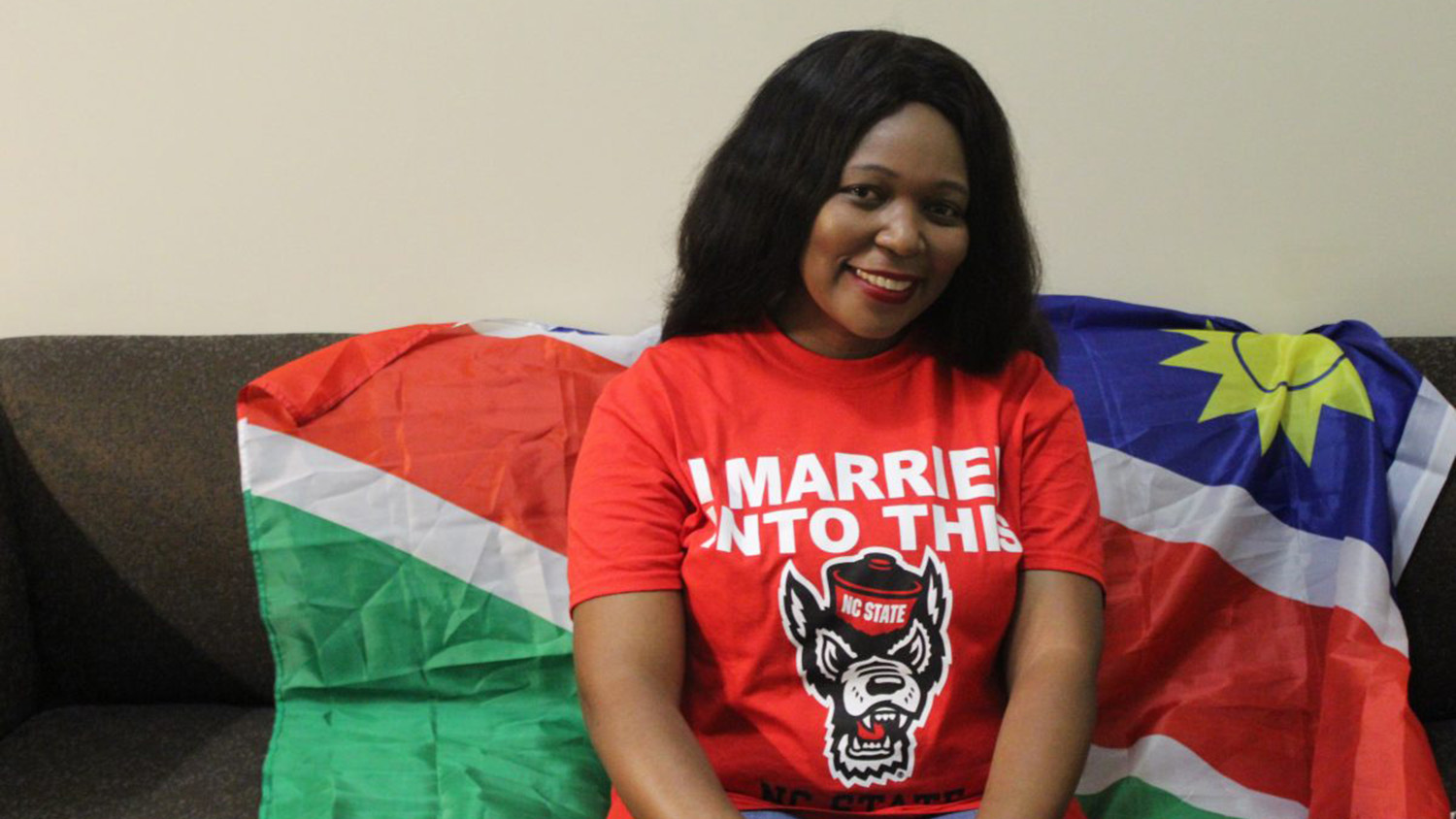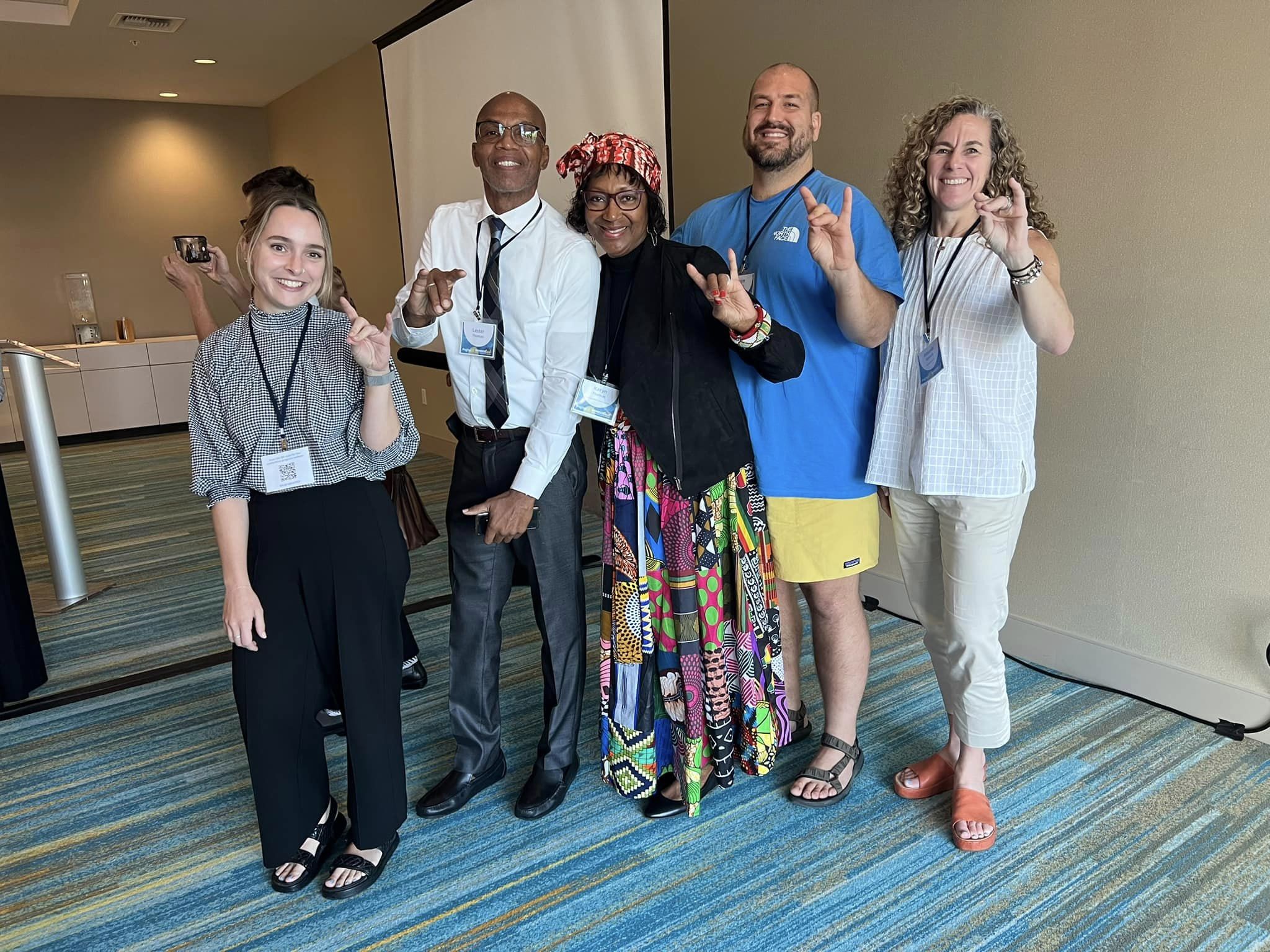MALS Student Spotlight: Alvine Kapitako

Tell us about yourself! Where are you from? What brought you to NC State?
I was born in Angola by Namibian parents. I grew up in Windhoek, the Capital City of Namibia. Namibia is located in South West Africa (it was previously known as South West Africa). I came to NC State because I felt the need to improve myself academically as well as professionally. I worked as a print journalist for close to 12 years before coming to State. I reported mostly on health issues (primarily HIV/AIDS, reproductive health, and non-communicable diseases), but I also did a lot of community reporting. In October 2017, I was nominated by the U.S Embassy in my country to participate in a three-week exchange program for Media Professionals to come to the U.S. While we were here, we visited the University of North Carolina at Chapel Hill and we also visited a few media institutions. I liked it here, especially the seminars taught at UNC. Around that same time, I was applying to universities, mostly in Europe, because I wanted to further my education there but because I liked the U.S experience, I thought it would be wise to come back here. When I was applying to universities, I did not want to study communication because I already have a B.A in Media Studies and French and a Master’s in Public Relations. However, my interests were to gain academic knowledge (training) in public health because I reported many public health issues in my country. So, as I was researching programs that would allow me to venture into science, I came across the MALS program, and I knew then and there that this was the program I wanted to join. I completed my application, and to my surprise, I was admitted into the program; and I do not regret coming here because I gained a lot of knowledge and experience in the past one year and three months.
What is your academic and/or professional background?
I have a B.A in Media Studies and French from the University of Namibia. I also have a Masters of Arts in Media Studies (my dissertation was on police-community relations using social media) from the University of Namibia. I worked as a journalist for close to 12 years. I mostly worked as a print journalist at state-funded publications (New Era and Southern Times newspapers), reporting community and health stories.
Why did you decide to apply to the MALS program? How do you feel MALS is a good fit for you?
I applied to the MALS program because I felt like I wanted to do something more challenging than just reporting health stories. I wanted to combine my experience as a journalist with my interest in public health to create a concentration that would allow me to use my experience and my love for science to effect change in Namibia and Africa. I always termed my work advocacy journalism because I did stories to create awareness on health problems. MALS is a good fit for me because I could select a concentration based on my career objectives and interests, mainly to become a public health expert with communication expertise. I want to communicate science messages more effectively because I understand science. I can convey the message to the public in a language that they can easily understand, “not using jargon.”
When/Why did you become interested in your area of study/research? How will you apply interdisciplinarity in your academic and professional work?
I realized about five years ago that not many Namibian journalists were interested in reporting on health stories, especially from an advocacy perspective. If at all, most only reported on breaking health news or if there was some sort of controversy. I wanted to go beyond the sensationalism and understand the science to inform my readers better. The challenge was that I had no science background. I relied on health experts to teach me and from doing my research. I was interested in getting the public to understand why it is essential to make better health choices. Although we have made significant progress thanks to funding from the U.S government and other donors, Namibia still has the highest HIV rate in sub-Saharan Africa. Non-communicable diseases such as diabetes and high blood pressure are among the top ten causes of death in Namibia. So, I wanted to be part of the solution. This qualification will put me in a position where I can continue to advocate for better health choices more effectively. The difference is that now I understand terminologies and science much better. While at State, I took classes in the College of Veterinary Medicine, Psychology department, the English and Communication Departments, and the MALS seminars that I loved very much. The experience I gained from taking these classes is invaluable and has helped me as an individual to view the world more broadly. First of all, this program’s interdisciplinary nature helped me a lot with report writing, science writing for the media, understanding sustainability, and understanding the world more broadly. I think people are beginning to appreciate interdisciplinary studies more because they know that it’s advantageous to be multi-skilled. The MALS seminars were able to help me to think about the world differently and more broadly. They challenged me to consider different perspectives.
How will MALS enhance your professional experience?
It will enhance my professional experience because I have a better understanding of science and development because of the courses I took here at NC State. I will continue with my advocacy work, but now I will do it with another qualification and a little bit of international experience. My goal is to work for a global health organization.
- Categories:


